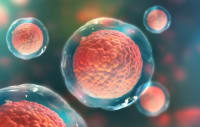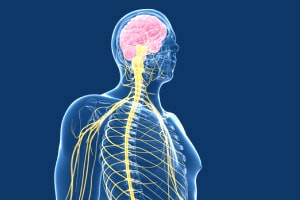Description
Stem cells are the most magical creation in the body...
What promise do stem cells hold for the treatment of medical conditions? In this five-part online course you will explore the history and basic biology of stem cells, learn about new research techniques, and find out how stem cells could lead to cures for diseases and to individualized medicine. You will hear from Museum scientists, medical researchers at the frontiers of the field, and a panel of bioethics experts who will address the ethical implications of stem cell research and therapy. Learn what has already been accomplished, what challenges remain, and what medical breakthroughs may lie ahead. The American Museum of Natural History is one of the world’s preeminent scientific, educational and cultural institutions. Since its founding in 1869, the Museum has advanced its global mission to discover, interpret, and disseminate information about human cultures, the natural world, and the universe through a wide-ranging program of scientific research, education, and exhibition. Welcome to The Science of Stem Cells! You will begin with a basic overview of stem cells--what they are, the history of stem cell research, and the potential for stem cell therapies. You will also learn from AMNH biologist Julia Zichello that stem cells are found throughout the tree of life. This week, New York University’s Dr. Esteban Mazzoni will discuss how scientists can coax stem cells to differentiate into particular cell types. Dr. Mazzoni will also talk about new stem cell-assisted technologies such as mitochondrial replacement therapy and generating chimeras for organ transplantation. You will also get some background information on the science and ethics of cloning. We have covered the process by which scientists can differentiate cells in a culture dish. Now you will look at how scientists can use these cell to model diseases in a culture dish. Dr. Andrew Sproul from Columbia University explains how cultured cells can be used to understand the cause of diseases and to look for drugs that will potentially cure them. His research is on Alzheimer’s disease. You will also explore how how stem cells have the potential to help with the study of diabetes. In addition to the great potential of stem cells to be used in the study of disease, stem cells can also be used to actually treat disease. Neural stem cell pioneer Dr. Sally Temple will explain the potential for using stem cells in our own bodies (adult stem cells) to treat age-related macular degeneration, an increasingly common and debilitating disease. Dr. Temple will also give you some tools for evaluating potential stem cell treatments. To complete the course, a panel of bioethics experts will discuss some of the controversies surrounding human embryonic stem cells and the legal, policy, and ethical challenges associated with the use of stem cells in basic and clinical research. You will have an opportunity to discuss and ask questions about the future of reproductive technology and stem cell research.








